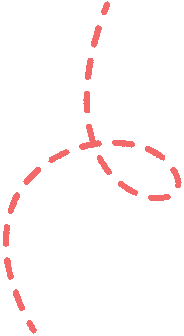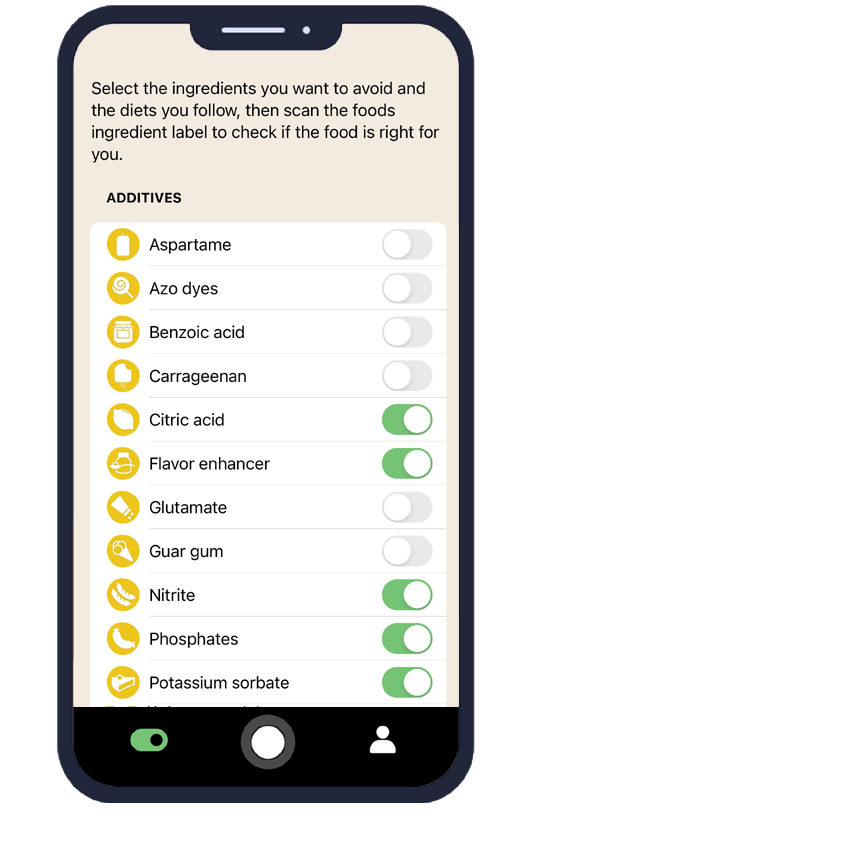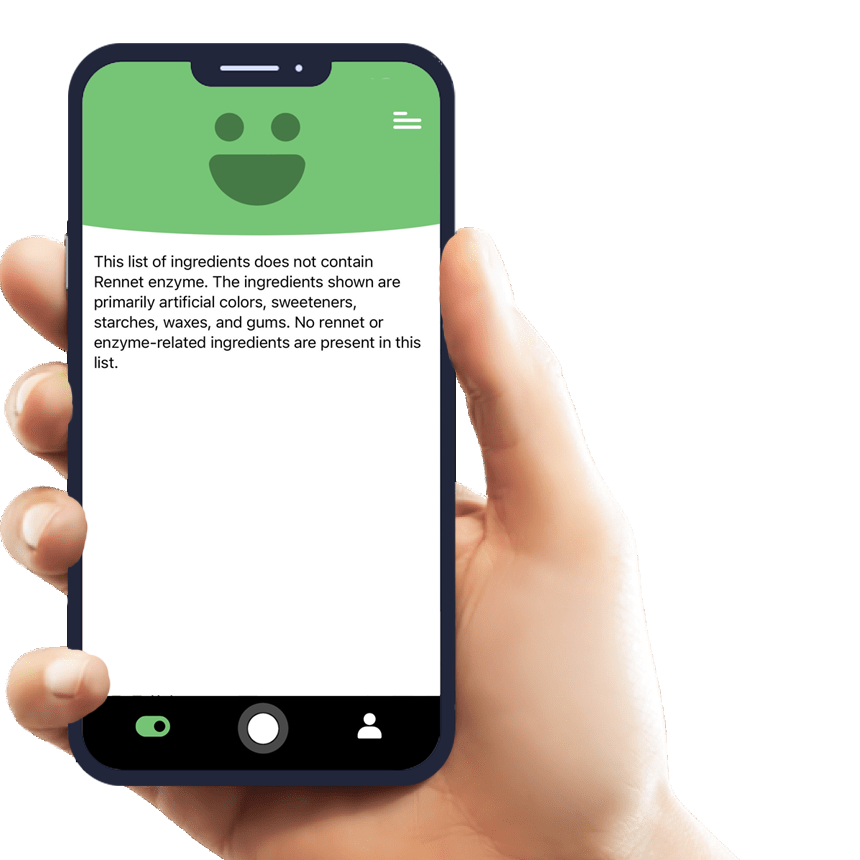Everything You Need to Know About Caffeine and How AI Eat This Can Help You Avoid It
Caffeine is one of the most widely consumed stimulants in the world, found naturally in coffee beans, tea leaves, and cocoa plants, as well as added to countless food products and beverages. While many people enjoy caffeine for its energizing effects, others need to avoid it due to health conditions, dietary restrictions, or personal preferences. Understanding where Caffeine appears in your food can be challenging, especially when it's hidden under different names or in unexpected products. The AI Eat This app makes it simple to identify Caffeine in any food product by scanning ingredient lists and providing personalized dietary filtering to help you make informed choices.
What Is Caffeine and Where Is It Used?
Caffeine is a natural alkaloid that acts as a central nervous system stimulant. In the food industry, it serves multiple purposes beyond its stimulating properties. Manufacturers add Caffeine to enhance flavor profiles, particularly in chocolate products where it contributes to the characteristic bitter taste. It's also used as a food additive to provide energy-boosting effects in various processed foods and beverages.
The compound appears in foods under various names and forms, making it essential for consumers to understand its many identities. Natural sources include coffee, tea, chocolate, and guarana, while synthetic versions are commonly added to energy drinks, soft drinks, and dietary supplements.
Common Foods Containing Caffeine
Caffeine appears in numerous food products, some obvious and others surprising. Here are the most common sources:
- Coffee and espresso-based beverages
- Black, green, and white teas
- Chocolate products (dark chocolate contains more than milk chocolate)
- Energy drinks and sports beverages
- Soft drinks like cola
- Ice cream and frozen desserts with coffee or chocolate flavoring
- Protein bars and energy bars
- Some medications and dietary supplements
- Decaffeinated coffee (contains small amounts)
Is Caffeine Safe? What Does the Research Say?
Regulatory Approvals and Guidelines
The U.S. Food and Drug Administration (FDA) recognizes Caffeine as "generally recognized as safe" (GRAS) when consumed in moderate amounts. The FDA recommends that healthy adults limit their daily caffeine intake to 400 milligrams, equivalent to about four cups of brewed coffee. The European Food Safety Authority (EFSA) has established similar guidelines, confirming that moderate caffeine consumption poses no safety concerns for most adults.
The World Health Organization (WHO) supports these findings, noting that caffeine safety depends largely on individual tolerance and consumption patterns. Food additives containing Caffeine must be clearly labeled in most countries, helping consumers make informed dietary choices.
Potential Risks and Considerations
While Caffeine is safe for most people, certain individuals may experience adverse effects or need to avoid it entirely. Excessive consumption can lead to jitteriness, anxiety, insomnia, and digestive issues. Some people are more sensitive to Caffeine's effects due to genetic variations in how their bodies metabolize the compound.
Pregnant women, individuals with heart conditions, and those taking certain medications should consult healthcare providers about their caffeine intake. Children and adolescents are also more sensitive to Caffeine's effects and should consume it in limited quantities.
Who Should Avoid Caffeine?
Several groups of people may need to eliminate or significantly reduce Caffeine from their diets. Individuals with Caffeine intolerance experience symptoms like rapid heartbeat, headaches, or digestive upset even with small amounts. While true Caffeine allergy is rare, some people may have sensitivities that require complete avoidance.
People with anxiety disorders often find that Caffeine exacerbates their symptoms, making dietary restrictions necessary for mental health management. Those with sleep disorders, acid reflux, or certain heart conditions may also need to follow Caffeine-free diets as recommended by their healthcare providers.
Individuals following specific dietary protocols, such as those avoiding all stimulants or adhering to certain religious or cultural dietary restrictions, may also choose to eliminate Caffeine from their food choices.
How Does AI Eat This Help You Avoid Caffeine?
The AI Eat This app revolutionizes how consumers identify Caffeine in food products through advanced ingredient scanning technology. Simply point your phone's camera at any ingredient list, and the app instantly identifies whether the product contains Caffeine, regardless of the language on the packaging.
The app's personalized filtering system allows users to set up custom dietary restrictions, including Caffeine avoidance. Once configured, the app provides immediate alerts when scanning products that contain this ingredient, helping you make quick, informed decisions while shopping.
AI Eat This recognizes Caffeine under all its various names and forms, including natural sources like cocoa and synthetic additions. The app's database is continuously updated to include new products and formulations, ensuring comprehensive coverage for users with dietary restrictions.
The multilingual capability makes AI Eat This particularly valuable for travelers or those shopping for imported products. Whether the ingredient list is in English, Spanish, French, or dozens of other languages, the app accurately identifies Caffeine and other food additives you want to avoid.
Tips for Maintaining a Caffeine-Free Diet
Successfully avoiding Caffeine requires awareness and planning, but these strategies can help simplify the process. Always read ingredient labels carefully, as Caffeine can appear under names like guarana extract, yerba mate, or kola nut extract.
Focus on whole, unprocessed foods when possible, as these are less likely to contain added Caffeine. Fresh fruits, vegetables, grains, and plain dairy products are naturally caffeine-free options that form the foundation of a healthy diet.
When dining out, don't hesitate to ask about ingredients in dishes, especially desserts that might contain chocolate or coffee flavoring. Many restaurants can provide ingredient information or suggest caffeine-free alternatives.
Consider using the AI Eat This app as your primary tool for ingredient verification. The app's quick scanning feature makes it easy to check products before purchasing, saving time and reducing the risk of accidental caffeine consumption.
The Benefits of Using Technology for Dietary Management
Modern food production involves complex ingredient lists that can be challenging to navigate without assistance. AI Eat This simplifies dietary restrictions management by providing instant, accurate information about food additives like Caffeine. This technology empowers consumers to take control of their dietary choices without spending excessive time researching individual products.
The app's comprehensive database and regular updates ensure that users have access to the most current information about food products and their ingredients. This reliability is crucial for people with serious dietary restrictions who cannot afford to make mistakes with their food choices.
Conclusion
Understanding Caffeine and its presence in food products is essential for anyone looking to manage their intake or avoid it entirely. Whether you're dealing with Caffeine intolerance, following specific dietary restrictions, or simply wanting to reduce your stimulant consumption, having the right tools makes all the difference. The AI Eat This app provides an innovative solution for identifying Caffeine in food products quickly and accurately, regardless of language or product origin. With its personalized filtering system and comprehensive ingredient database, the app empowers users to make confident dietary choices that align with their health goals and restrictions. Download AI Eat This for free testing today and take control of your dietary management with cutting-edge technology designed for modern consumers!

70 filters
With over 70 filters, you can easily avoid certain ingredients and follow your dietary preference.

Paleo

Pescetarian

Ultra-processed food

Vegan







































































